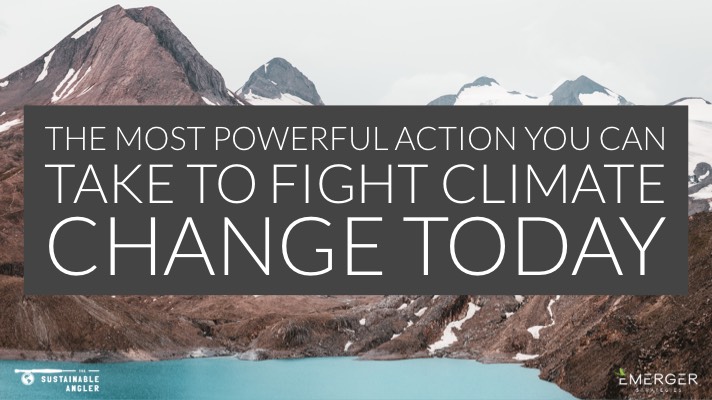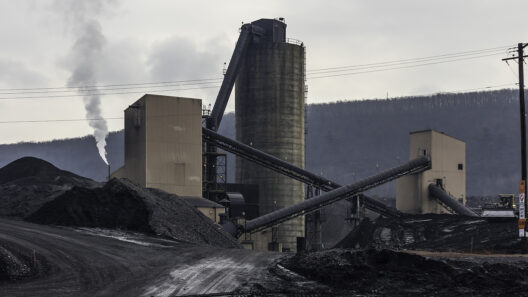The daunting specter of climate change looms large, presenting an existential crisis that intertwines with every facet of our lives. Many feel overwhelmed by the magnitude of the challenge, perhaps even paralyzed into inaction. However, it is essential to recognize that fighting climate change begins with individual actions—small, yet impactful decisions that collectively forge a path toward a sustainable future.
First and foremost, a profound shift in perspective is required. Climate change is not an abstract problem confined to distant scientists or policymakers. It is a visceral reality that affects personal well-being, economic stability, and even global security. The more immediate and relatable we make this issue, the more people will feel motivated to engage in the fight against it.
One of the simplest yet most effective actions one can take today is to embrace the power of conscious consumption. Prioritize purchasing products from companies that champion sustainable practices and ethical sourcing. This not only aids in reducing the carbon footprint associated with manufacturing but also supports businesses that are committed to leading the charge in eco-friendly practices. Start by scrutinizing labels; seek out certifications like Fair Trade, USDA Organic, and various eco-labels that signify genuine environmental responsibility.
Moreover, consider the ramifications of food choices on the planet. The agricultural sector is a significant contributor to greenhouse gas emissions. Adopting a plant-based diet—or even reducing meat consumption—can have profound implications for mitigating these emissions. Exploring local markets and opting for seasonal produce not only enriches your diet but also lessens the transportation impact associated with out-of-season imports.
Transportation is another critical area ripe for immediate action. The global reliance on fossil fuels is a double-edged sword—necessary for mobility but detrimental to air quality and climate stability. One of the most straightforward modifications individuals can make is re-evaluating how they commute. Utilize public transportation whenever feasible, carpool, or even bike or walk short distances. These alternatives not only sharply reduce greenhouse gas emissions but also cultivate healthier lifestyles.
For those who drive, consider investing in an electric or hybrid vehicle. Technological advancements are rapidly improving the efficiency and accessibility of these options, making them a viable alternative to traditional gas-powered vehicles. Even if electric vehicles are not on the horizon, simple maintenance practices—such as regular engine check-ups, proper tire inflation, and minimizing idling—can significantly enhance fuel efficiency and curb emissions.
Energy consumption in homes represents another critical domain where individual responsibility can lead to significant environmental benefits. Simple changes, such as switching to energy-efficient light bulbs, can substantially decrease energy usage. Install programmable thermostats to manage heating and cooling effectively, and unplug electronics when not in use to minimize phantom energy loss.
Beyond individual actions, community engagement is an indispensable aspect of combatting climate change. Become an advocate in your local area; join or initiate community groups that focus on sustainability. Raise awareness about climate issues through forums, workshops, or social media campaigns. Collective efforts can create a ripple effect, amplifying individual actions into broader societal change.
Participating in local politics is equally vital. Advocate for policies that prioritize renewable energy, enhance public transportation, and promote waste reduction initiatives. Engage with local representatives to express the importance of these issues and hold them accountable for climate commitments. Local governments have the power to enforce regulations that incentivize green infrastructure, connect communities with nature, and invest in education around climate change.
Reducing waste is another instrumental method in fighting climate change. The conventional “take-make-dispose” model is unsustainable and leads to increased landfill emissions. Strive to adopt a circular economy mindset by prioritizing reuse, recycling, and composting. Begin by reducing single-use plastics; opt for reusable bags, containers, and utensils. Engage with your community in local clean-up events and advocate for more comprehensive waste management policies.
Moreover, educating oneself remains foundational in the fight against climate change. The more informed an individual is about the ramifications of their choices, the more empowered they become to make nuanced decisions. Delve into books, articles, and documentaries related to environmental science and policy to nurture a deeper understanding of the interconnectedness of ecosystems and human activity.
Simultaneously, fostering curiosity and exploring innovative solutions is crucial. Scientific innovation holds immense potential for addressing climate change. Support and invest in technological advancements and renewable energy alternatives. Whether it’s solar, wind, or hydropower, these sustainable energy sources are becoming increasingly cost-effective, providing a viable alternative to fossil fuels.
As we navigate the complexities of sustainable living, it is imperative to recognize that individual actions cumulatively possess great power. Each conscious decision contributes to a larger collective movement that challenges the status quo and inspires monumental change. The journey begins with us—arming ourselves with knowledge, advocating for systemic change, and embracing sustainable practices in our daily lives.
Each contribution matters. The urgency of the climate crisis demands not only awareness but also actionable solutions. A myriad of opportunities awaits our engagement—promising not just the hope of a sustainable future but a vision of a thriving planet. Embrace the challenge; the fight against climate change begins today.






